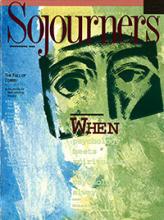How can abortion rates be brought down when Roe vs. Wade is the law of the land? How can unwanted pregnancies be minimized in a post-Roe nation, where abortions would be legal in some states and not in others? How can we create a society where women feel they have real alternatives to abortion?
Such questions, which go to the heart of the U.S. abortion debate, never made it to the heartland. Ironically, Wichita, Kansas, will not go down in history as the site where new ideas about how to reduce the demand for abortion emerged -- despite almost 3,000 arrests in July and August of people who tried to shut down the city's three abortion clinics.
Instead, the Summer of Mercy (as it was dubbed by the anti-abortion group Operation Rescue) appears to have further polarized the issue. All that has changed is the decibel level of pro-life and pro-choice voices; they are shouting more loudly.
The tone and style of Operation Rescue, which organized the Summer of Mercy, ensured that no new political space would open up for people of good will -- pro-choice and pro-life alike -- to talk about how to prevent abortion. Rescue leaders -- not all but politically key ones -- relied on an apocalyptic "us vs. them" mentality to convey their message, often using the Bible to demonize the other side. The triumphalism of some of the leadership at times made a mockery of those "rescuers" given to a posture of prayerful introspection.
Read the Full Article

